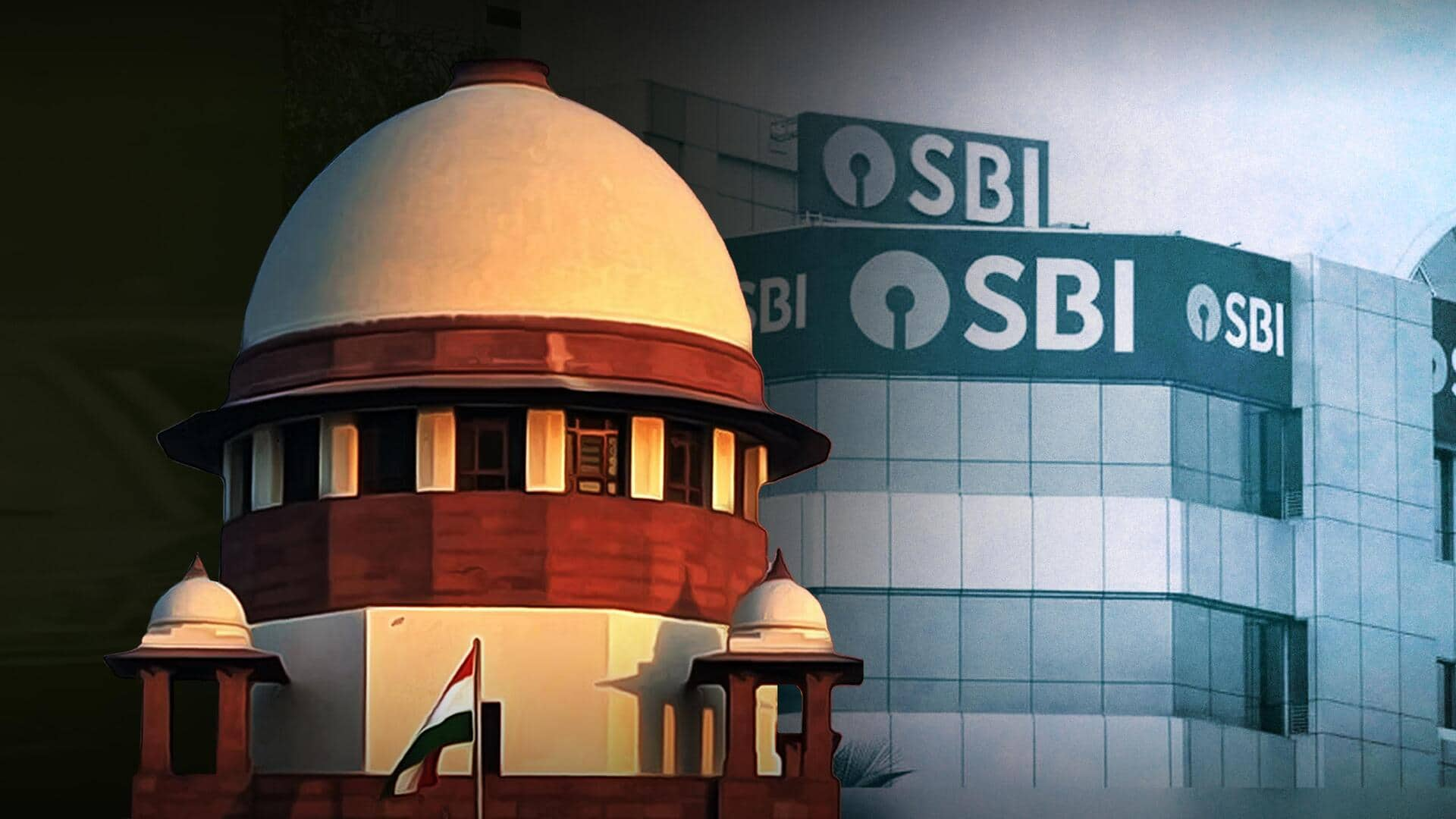
Electoral bonds case: Supreme Court to hear SBI's request today
What's the story
The Supreme Court (SC) will hear a plea from the State Bank of India (SBI) seeking more time to file information on electoral bonds on Monday.
The country's top court had given the bank until March 6 to file the details regarding the matter. The bank, however, requested an extension until June 30.
The apex court will also hear a separate application seeking contempt action against the SBI for allegedly "deliberately" and "wilfully" disobeying the court's deadline for submitting details.
Context
Why does this story matter?
In a February 15 ruling, the apex court said the scheme—introduced in the 2017 Union Budget by Prime Minister Narendra Modi's government—is unconstitutional and violates the right to information.
However, the SC took years to hear the petitions submitted against the scheme and previously refused to stay it.
This means that the SBI sold hundreds of electoral bonds worth crores as recently as January 2024.
SC bench
Know about the 5-judge SC bench
A five-judge bench headed by Chief Justice of India DY Chandrachud will hear both matters on Monday.
The bench also comprises Justices BR Gavai, JB Pardiwala, Sanjiv Khanna, and Manoj Misra.
In its judgment on the electoral bonds last month, the SC had asked the Election Commission to publish the disclosed information on its official website by March 13.
It subsequently directed the SBI to submit the details of the electoral bonds purchased since April 12, 2019 by March 6.
ADR plea
Contempt plea against SBI for refusing to disclose electoral bonds
Last week, the Association for Democratic Reforms (ADR) approached the SC seeking contempt of court action against the SBI for "disobeying" its orders regarding electoral bonds.
The ADR described the bank's request for extension as "malafide" and an attempt to deter transparency measures ahead of the Lok Sabha elections.
At the time, lawyer Prashant Bhushan, appearing for the ADR, stated that the SBI's plea would most likely be listed on Monday and that the contempt application should be considered together.
SC's stand
Here's what SC said in February on electoral bonds
While delivering the judgment last month, CJI Chandrachud noted that citizens have the right to know about political party funding, and this information is important for the electoral process.
He also said that financial support to a political party can lead to a "quid pro quo arrangement."
"The Electoral Bonds Scheme is not the only scheme to curb black money. There are other alternatives," the top court said in its verdict.
Electoral bonds
All you need to know about Centre's electoral bonds scheme
Electoral bonds allow anonymous Indian citizens or corporations to donate money to political parties. The bonds are available in multiples of Rs. 1,000, Rs. 10,000, Rs. 1 lakh, Rs. 10 lakh, and Rs. 1 crore and can be bought at approved SBI offices.
The donor could give these bonds to a party or parties of their choice, which could opt to cash in such bonds within 15 days.
This approach ensured that the donor's identity remained anonymous.